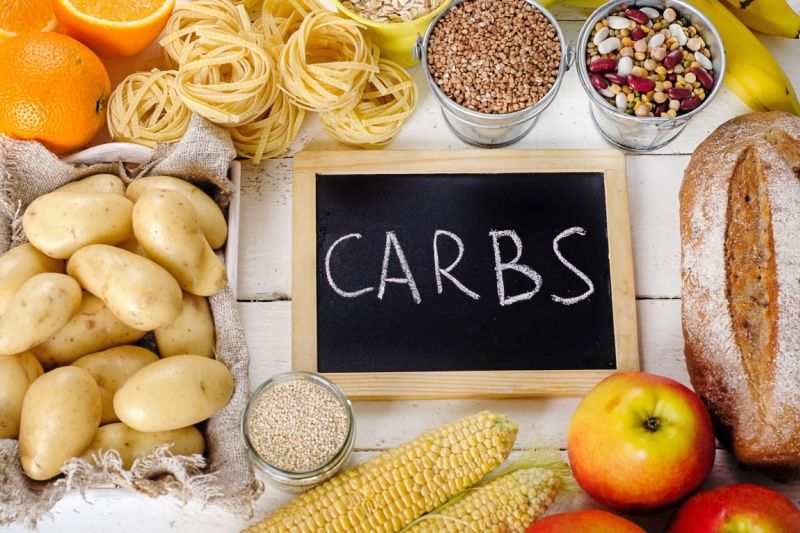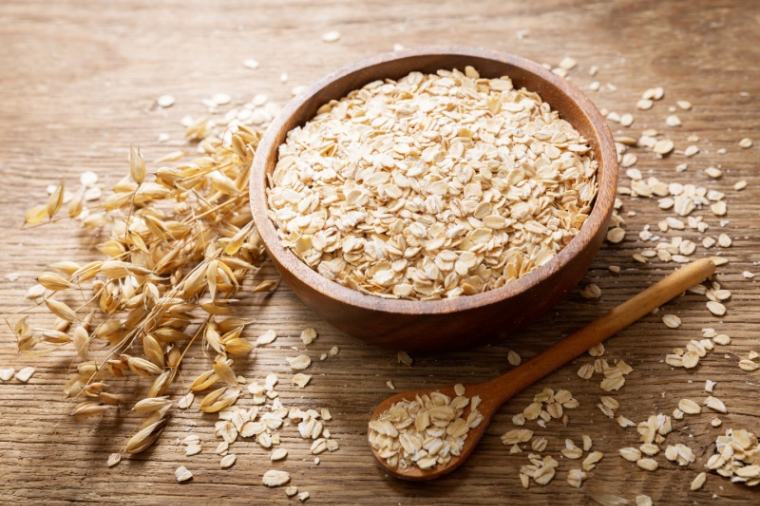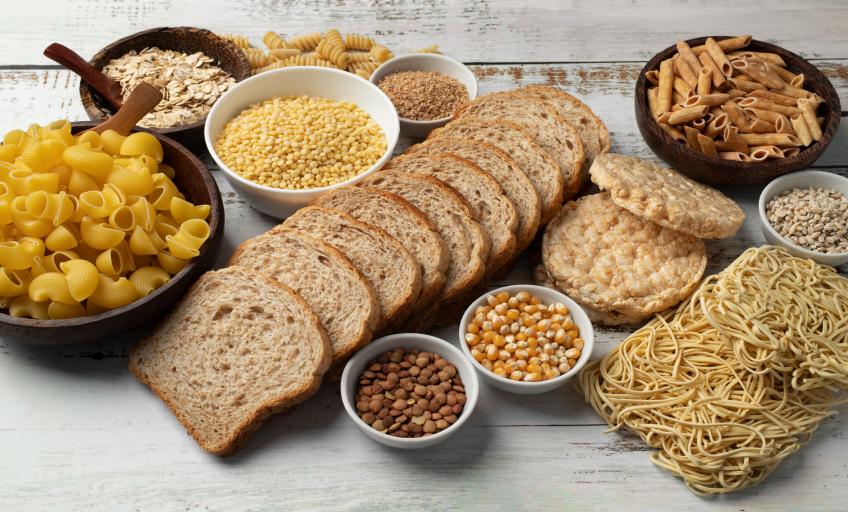Key Takeaways
- Carbs act as a source of energy and control blood glucose and insulin metabolism.
- Insulin breaks down sugar in the blood for energy use.
- If you have diabetes, choose healthy, slow-digesting, low glycemic index carbs in the right amount to prevent any sugar spike.
- The amount of carbs a person with diabetes must have varies from patient to patient.
Carbohydrates are the most commonly found nutrient in our foods. They are found in almost all kinds of healthy and unhealthy foods. Our goal is to identify healthy carbohydrates and add them to our meals. Carbohydrates are essential for energy as they are broken down and release glucose into the bloodstream. This is mainly why people with diabetes need to ‘watch their carbs.’ But don’t forget that you can’t eliminate carbohydrates, as they are one of the main components of a healthy meal.
इनके बारे में जानें:
- What are carbohydrates and their role in the body?
- Insulin in diabetes explained
- Carbohydrates and diabetes: Impact of carbohydrates on blood sugar levels
- Can people with diabetes consume carbohydrates?
- Choosing the right carbohydrates for people with diabetes
- How much carbs should a person with diabetes have in a day?
What are carbohydrates and their role in the body?

Carbohydrates, proteins and fat are the three macronutrients in our diets. Carbohydrates are essential for our body. They play a significant role in acting as a source of energy and controlling blood glucose and insulin metabolism. Once the digestive tract breaks down carbohydrates, it becomes glucose, which is consumed for energy. The excess glucose is stored in the muscle tissue and liver when the body requires energy again. Carbohydrates are of three types – starch, sugar and fibers.
- शुगर is classified as a simple carbohydrate, which can be broken down quickly and converted to glucose.
- Starches are complex carbohydrates, which are made of simple sugars. Your body needs to break starches down into sugars to use them for energy. Starches include bread, cereal, and pasta. They also include certain vegetables, like potatoes, peas, and corn.
- फाइबर is also a complex carbohydrate. Your body cannot break down most fibers, so eating foods with fiber can help you feel full and make you less likely to overeat. Diets high in fiber have other health benefits. They may help prevent stomach or intestinal problems, such as constipation. They may also help lower cholesterol and blood sugar. Fiber is found in many foods that come from plants, including fruits, vegetables, nuts, seeds, beans, and whole grains.
Insulin in diabetes explained
Insulin is a naturally occurring hormone that breaks down sugar in the blood for energy use. If your body does not receive adequate insulin, it can lead to elevated blood sugar levels. Type 1 diabetes means a person’s body does not produce any or enough insulin. According to Johns Hopkins University, type 1 diabetes typically starts when a person is young and occurs due to the immune system attacking the pancreas, which prevents the body from producing insulin. In type 2 diabetes, a person’s body is insensitive to insulin. Type 2 diabetes usually occurs later in life, often in adults who have obesity.
Carbohydrates and diabetes: Impact of carbohydrates on blood sugar levels
Having diabetes means you will have to keep your blood glucose levels under control. Thus, the effect of carbohydrates on your blood glucose levels is also significant as they will be converted to glucose, and their levels will rise in your bloodstream. If you have diabetes, choose healthy carbs, the right amount to eat, and try to eat slow-digesting carbs with a low glycemic index to prevent any sugar spike. Most importantly, never eliminate carbs from your meal. People with diabetes need carbohydrates to stay energetic and healthy, but only when consumed correctly.
Can people with diabetes consume carbohydrates?
Absolutely! Diabetes and carbohydrates are intertwined. Carbohydrates play a huge role in providing energy to the body and in regulating blood sugar levels. They are also important for brain functions and in maintaining good gut health.
Choosing the right carbohydrates for people with diabetes
The quality and quantity of carbohydrates matter, especially for people with diabetes. They must rely on slow-digesting, adequate carbohydrates of the right choice with a low glycemic index. Your doctor or dietician will guide you to a meal plan that satisfies you, but you must follow the routine. बचें sugary foods, pasta, processed snacks, alcohol and starchy foods. Instead, choose carbohydrates like barley, lentils, rye and quinoa to prevent uncontrolled blood sugar and provide more nutritional value.
How much carbs should a person with diabetes have in a day?
People can choose to eat a low or high-carb diet, but for people with diabetes, the amount is determined based on various factors such as medical condition, age, comorbidities, etc. Although the American Diabetes Association recommends people with diabetes get about 45% of their calories from carbohydrates, the truth is that it varies from patient to patient. Different individuals have different conditions, and a doctor or dietician can only recommend the right amount after an examination.

High-carb diets may be ruling the market, but several healthier alternatives are available. Here are a few:
- Quinoa
- ओटमील
- Blueberries
- Hard-boiled eggs
- Yogurt
Some prefer low-carb diets, while the rest love their carb-loaded meals. Moderation is the way to go for people with diabetes and carbohydrates in the right amount to enjoy a balance of tasty and healthy food once they have consulted their doctors.
Stay tuned to the Activ Living Community. Get updated with the latest health tips and trends through expert videos, podcasts, articles, and much more on पोषण, फिटनेस, सचेतन, और लाइफस्टाइल से जुड़ी बीमारियां like Asthma, High Blood Pressure, Cholesterol, and Diabetes. Activ Living ke saath sahi sehat ki shuruaat ABHIkaro.
You may also be interested in the following blogs:
- 7 Artificial And Natural Sweeteners For People With Diabetes
- Discovering The Weight Loss And Cardiovascular Advantages Of Ozempic
Popular Searches
How to lower blood pressure | Fruits good for liver | Unhealthy foods | रागी के लाभ | बेसल मेटाबोलिक रेट | हाई ब्लड प्रेशर के लिए एक्यूप्रेशर पॉइंट्स | Ayurvedic medicine for blood pressure | How to control cholesterol at home | Homeopathy for Asthma | Biological Age | Home remedies for TB | Natural beta blockers | Negative effects of internet | Types of walking | ब्लड प्रेशर कैलकुलेटर | ब्लड शुगर कैलकुलेटर | BMI कैलकुलेटर





 1800-270-7000
1800-270-7000







This article contains a lot of important info for me.
Oh my goodness! Incredible article dude! Many thanks
Wow, incredible blog structure! The overall look of your web site is great, let alone the content!
Hey there! This post couldn’t be written any better!
this is fantastic blog.
A fantastic read. I will certainly be back.